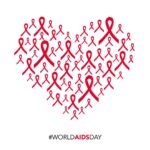Sex for Sale in Africa: How Much Do Countries Spend on Escorts?
Page Contents
Sex for Sale in Africa: Country Breakdown — Kenya, Nigeria, Tanzania, Uganda & Ghana
Sex work is one of the oldest professions in the world, but in Africa, it’s also one of the least openly discussed. From Nairobi’s backstreets to Lagos highways and Accra’s hidden red-light zones, the business of bodies is a billion-dollar reality. Let’s break down sex-for-sale markets in Kenya, Tanzania, Nigeria, and Ghana—where the numbers reveal more than just lust.
Kenya: From Nairobi’s CBD to Coastal Nightlife
Kenya has one of the most visible sex work markets in East Africa. According to UNAIDS, there are an estimated 133,675 sex workers across the country. Nairobi alone has an estimated 6,904 street-based workers in its Central Business District (PMC Study), showing how concentrated the trade is in urban centers.
But here’s the twist: while the trade is illegal, Kenya has made strides in reducing risk. HIV prevalence among female sex workers dropped dramatically—from 44% in 2008 to just 12% in 2017 (PMC). This success is credited to prevention programs, condom distribution, and community clinics.
Looking for Nairobi’s escort scene? Kenya Escorts provides a snapshot of how sex-for-sale has moved from alleys to digital platforms.
Tanzania: The Silent Epidemic
In Tanzania, sex work is illegal but thriving. Dar es Salaam alone hosts thousands of women, often working in bars, guesthouses, and tourist-heavy areas like Zanzibar. The real crisis? Health.
Studies reveal HIV prevalence among sex workers at 31.4% in Dar es Salaam compared to 10.4% in the general population (National HIV Study). In other regions, it climbs as high as 40.9% (Frontiers in Reproductive Health).
While the numbers are alarming, they underline why NGOs often call Tanzanian sex workers a “key population” in fighting HIV. For outsiders, the tourist trade fuels demand, but for locals, sex work remains one of the few survival strategies in a struggling economy.
Learn more about the hidden side of Tanzania Escorts, where survival meets desire.
Nigeria: Africa’s Billion-Dollar Escort Economy
If there’s one country where sex-for-sale is both an open secret and booming business, it’s Nigeria. Lagos is the epicenter. A recent survey revealed 1.86 million of 3.1 million sexually active men (ages 20–69) admitted to paying for sex last year, spending a combined ₦661 billion (about $500 million USD) (Punch Nigeria).
The average cost? Around ₦36,750 (~$60) per session, though upscale neighborhoods and elite escorts demand as much as ₦100,000 ($160).
Nationally, estimates suggest over 1 million commercial sex workers operate across Lagos, Abuja, Port Harcourt, and Kano (Nigerian Journal of Sociology). And with economic pressures deepening, 10% of Nigerian women now report engaging in sex work to survive, with 9% admitting to condomless encounters since COVID-19 (Healthwise Nigeria).
Curious about this scene? Explore Nigeria Escorts for a closer look at how transactional sex shapes nightlife and survival.
Ghana: Young, Vulnerable, and Hidden
Ghana’s numbers are smaller than Nigeria’s, but no less shocking. A study estimated 60,049 female sex workers, making up about 1% of women aged 15–49.
The darker reality? The average entry age into sex work is just 14 years old. Poverty, gender inequality, and limited opportunities push girls into the trade long before adulthood.
Unlike Kenya’s harm reduction strategies, Ghana’s approach remains inconsistent—meaning escorts and street-based workers often lack access to healthcare, protection, and safety networks.
For insights into the growing market, check Ghana Escorts, where transactional sex is moving from streets to digital platforms.
Uganda: Survival in the Shadows
In Uganda, sex work is illegal, but widespread. A BMC study estimated that of 20 women in the escort industry, 12 used online platforms to meet clients. HIV prevalence remains alarmingly high at 33% among sex workers, compared to 7% in the general female population.
Kampala is the epicenter—bars, lodges, and highway truck stops serve as hotspots. Criminalization means women often face harassment, with police exploiting them instead of protecting them.
Yet, like in Kenya, NGOs have tried to offer health services and safe spaces. Still, Uganda’s sex workers remain some of the most marginalized on the continent.
Check the evolving market via Uganda Escorts.
Africa’s Escort Economy in Perspective
| Country | Estimated Sex Workers | Key Facts |
|---|---|---|
| Kenya | ~133,675 | HIV prevalence dropped from 44% → 12% |
| Tanzania | 155,450+ (est.) | HIV prevalence 31–40% |
| Nigeria | 1 million+ | ₦661bn spent annually; elite escorts charge $160 |
| Ghana | 60,049 | Entry age as low as 14 years |
| Uganda | 130,000 | HIV prevalence at 33% |
The numbers show just how different sex-for-sale plays out depending on culture, law, and economics. From Nigeria’s billion-dollar markets to Ghana’s underage entry point, the “escort economy” reveals as much about survival as it does about pleasure.
Sex, Stigma, and Survival
Across Africa, sex work sits in a paradox. It’s everywhere, yet stigmatized, criminalized, yet booming. Shunned in public, yet sought after in private.
The numbers may shock, but they also remind us: behind every transaction lies a woman navigating poverty, survival, and the politics of pleasure.
For more raw truths about African sexuality, visit Erotic Africa.
 3476
3476







